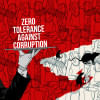Why are so many ACC cases unresolved?

It is alarming to learn that the Anti-Corruption Commission (ACC) is struggling with a backlog of over 3,300 cases in various courts across the country. Meanwhile, new cases are also piling up every month, adding to the backlog. Reportedly, this is due to the miserably low rate of disposal, with only 341 cases disposed last year. Equally worryingly, the conviction rate has also been very low.
So, what is causing these cases to accumulate?
According to a report by this paper, individuals accused in ACC cases often turn up in the courts and file writ petitions, following which the High Court issues stay orders, halting all proceedings. Among the accused are politicians, businesspeople, current and former government officials and their family members, and the charges include bribery, corruption, embezzlement of public funds, irregularities in property acquisition, and tax evasion. We do not have to reiterate how important it is to make sure that these cases get disposed of within a reasonable period, so that those who are guilty can be brought to book and those innocent can get the legal burden off their backs.
According to an ACC commissioner, the commission tries its best to present the evidence and information on time. But those accused manage to use legal loopholes to stop the proceedings of cases, leading to the backlog. Thus, individuals engaged in various corrupt practices know that even if a case is filed against them, it will not be disposed of any time soon. Such delays may help culprits to cover their tracks and hence encourage more corruption rather than curb it. Bangladesh now ranks 10th from the bottom in the latest Corruption Perceptions Index (CPI) of the Transparency International. "Intensified corruption" in public sector was one of the major factors behind this ignoble ranking, which is hardly indicative of the "zero tolerance" policy the government claims to have with regard to corruption—a claim repeatedly made despite all evidence to the contrary.
Corruption thus has become a malaise affecting every sector of the country. And ordinary people have been suffering the most because of it. It is eating away much of our economic and development potentials, and wasting precious public funds. It is not just the government's mandate to combat this cancerous growth from spreading, but doing so is in its own interest, for corruption hampers development and leaves the country poorer and more vulnerable. We urge the government to ensure that the ACC is empowered properly, and that the legal process—which will ensure that the corrupt are punished—can run smoothly without being hindered by long delays.

 For all latest news, follow The Daily Star's Google News channel.
For all latest news, follow The Daily Star's Google News channel. 











Comments